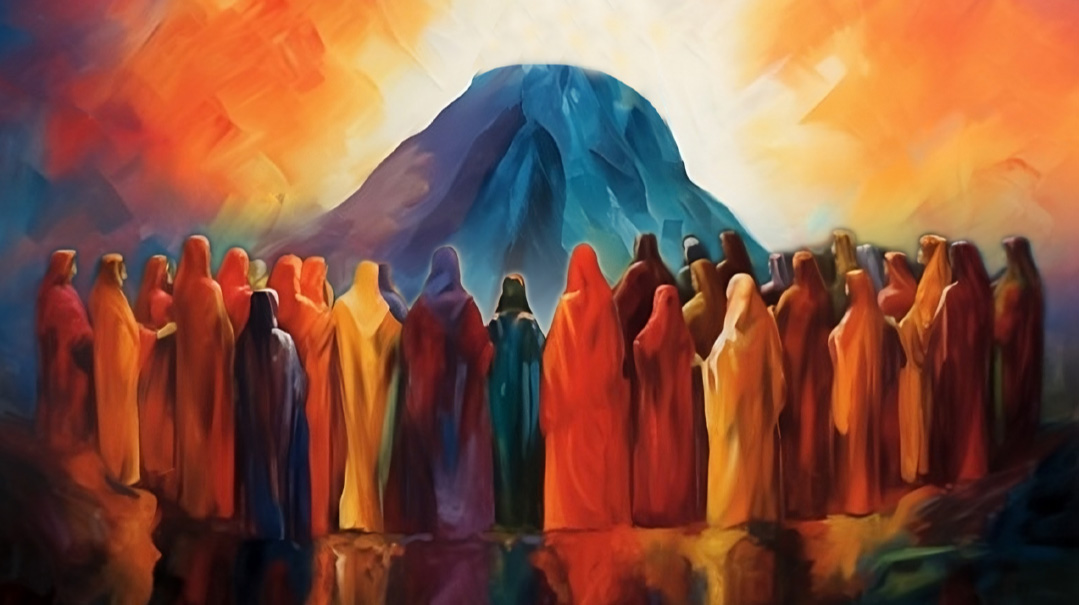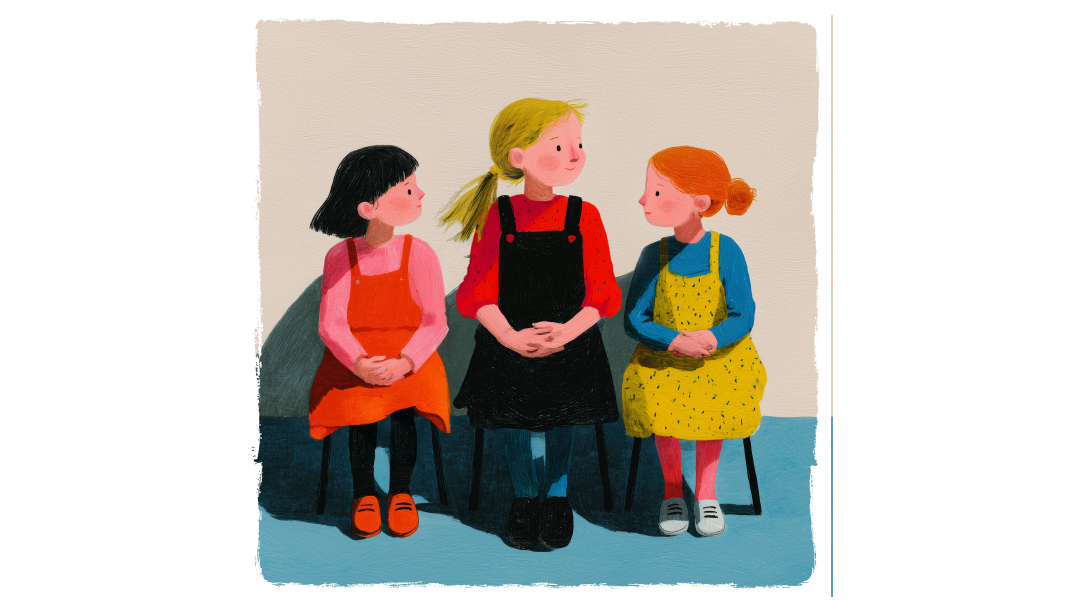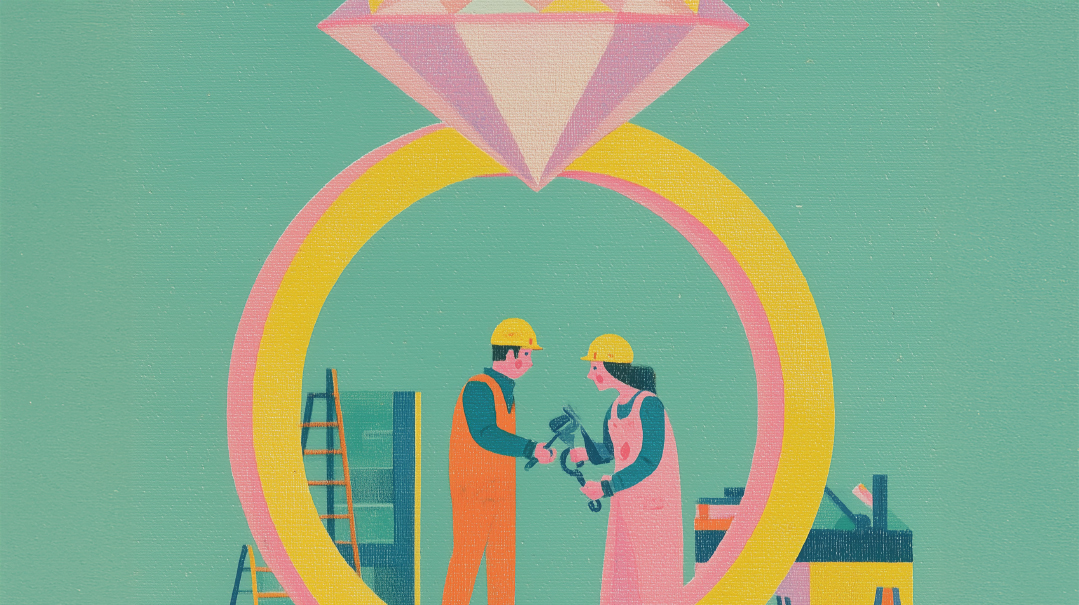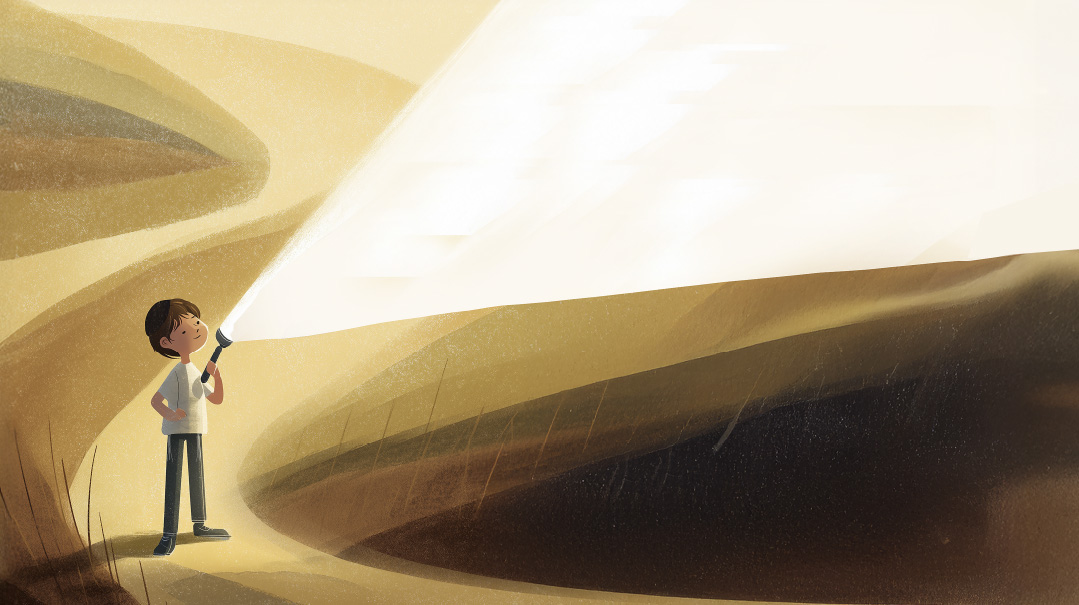Proud Member of the Tribe
| May 23, 2023Six women share the moment they felt privileged to belong to our nation

Dina Storch
I’M’
nearing the yahrtzeit for my daughter; it’ll be six years since we spent two years of our lives with her in the hospital. The feeling of being different and special — chosen — from among the nations was stark.
In the care of the medical teams, we saw our community through the eyes of outsiders, and we gained an appreciation of what we have — it was as Dovid Hamelech said, “Let all the nations praise Hashem.”
I remember once meeting with a social worker in the bikur cholim house that was made available to us. “What do you mean, this is your house?” she asked. “I thought you lived in Lakewood.”
I explained to her the concept of bikur cholim. She touched the walls of the house in disbelief. “This [kindness] is angelic,” she said.
Chai Lifeline volunteers and other visitors came to my daughter every day. No other patients had support like that. The nursing staff could not distinguish between volunteers and our actual cousins, because really, we Jews are a family. When my husband blew the shofar in the hospital, the nurse present was sobbing at the obvious holiness. I remember explaining that on my Sabbath I could not do certain acts, which are creative work, because G-d created the world and rested on the Sabbath. They loved that, which gave me a renewed appreciation for the Torah and its laws. Another time, I was chatting with staff and explained how our schools in Lakewood often host weddings, since the premises are not used in the evenings anyway. The reaction was undiluted admiration. “I always knew that Jews were really clever.”
Before my daughter’s petirah, we were sitting and singing. At one point, we switched to English songs. Non-Jewish staff who were present told us to “go back to the prayers.” Without understanding a word of the pesukim, they could feel the emotional and spiritual impact of the words of Tehillim and tefillah.
Really, we have a treasure vault.
Dina is a singer, songwriter, and music teacher who has been active on the Jewish music scene for several decades.
Mrs. Miriam Swerdlov
The Kosel, summer of 2005. The plaza was filled with thousands of Yidden, shoulder to shoulder, arm in arm, crying and davening. I was there with my campers, young American girls who grew up on cornflakes and rice krispies and whose usual thoughts were about trending skirts and matching shoes. But that night, they thought beyond themselves, to the story of our People.
It was a tragic time. The mistaken notion that Israeli benevolence would somehow change the Palestinian narrative and mindset and win the approval of the world had led Ariel Sharon’s government to give a part of Eretz Yisrael to the Arabs. The beautiful communities of Gush Katif, in the Southern Gaza Strip, with their thriving Jewish families, their verdant fields and greenhouses, were scheduled to be exiled. In all, the government would forcibly remove more than 8,600 people from their homes.
Possibly the biggest mistake the Israeli government would ever make — a self-inflicted lethal wound.
Thousands of Yidden gathered to beg Hashem not to let this happen. At the Kosel that night, we cried for our brothers who were about to be so cruelly uprooted. It was close to Tishah B’Av, and tragedy was unfolding, but the achdus we felt, the powerful connection of pleading with the Eibeshter together, somehow generated pride in me.
On the wings of that prayer and achdus, I felt chosen and beloved, as one of Hashem’s people, everlastingly connected to Him. I thought the achdus would bring the Geulah. Obviously, Hashem decided differently. But when we can get together like that, we’re very, very close.
Popular lecturer Miriam Swerdlov has taught Jewish History at Yeshiva High Schools for more than 30 years and directs a camp for American teenagers in Israel every summer.
Mrs. Brany Rosen, Founder, Atime
WE were in the ATIME office working on a new package for HUG, our pregnancy-loss program, which is very dear to me. We didn’t have the funds for it, which was not unusual. We don’t wait until we have the money to fill our couples’ needs; we jump in for them, and Hashem helps us out. At some point during the day, my husband called me at work and told me I really had to come along to be there for the women at the Shasathon in England. He had booked me a ticket for that night, so I had to leave the office and go pack.
As I left, the medical director was still talking to me about the funding for HUG. “This hospital sees many losses,” he said, naming one. “Maybe we should make an appointment to speak to somebody there for funding.”
“I’ll reach out when I get back,” I said. And I left for London.
In the airport, two older couples were going through security ahead of me and were booked on my flight. They were joking around about whether or not they had to take off their shoes for security, since they were over 65.
Traveling back with my husband a few days later, we met these same two couples in the lounge. I went over to say hello and told them that their lightheartedness had taken away some of my fear of aging. They started to chat, telling me that they’d recently bought a timeshare and started to take monthly getaways. Then they asked why I was traveling. I explained that I worked for a charity, and I talked about the Shasathon (which they couldn’t really understand!). I showed them pictures of our events and our couples.
“Where is your organization based?”
“Brooklyn,” I said.
“I work in Boro Park,” the man responded.
“What do you do?”
“I’m the vice president of a medical center,” he said, naming the one my medical director had mentioned.
I spoke to him right then and there about HUG, and he told me to make an appointment; he’d see what he could do. “I don’t know exactly what you’re doing, but I like the feel of your organization,” was his cautious comment.
This vice president was far senior to my original contact in the hospital. Sure enough, he funded those comforting packages to the tune of $25,000.
In my work at ATIME, I come into frequent contact with the incredible goodness of Yidden. But when I see how lovingly HaKadosh Baruch Hu takes care of His kinderlach, I know: We are fortunate to have been chosen.
Brany Rosen is the founder of ATIME, a Jewish organization that helps couples going through infertility. She is currently the Director of Member Services for ATIME.
Ahava Ehrenpreis
AS
a young mother, I found myself spending two months in Kyoto, Japan, with four young children, since my husband was the celebrated guest of the University of Kyoto.
From the outset, we astounded our workaholic hosts with the statement that my husband would not be lecturing (nor available to do research) on Saturday or on Sunday, as the answer to the question of which day is Shabbos in the Land of the Rising Sun is not entirely clear.
We walked the narrow streets of Kyoto, teeming with humanity, where the air is filled with the incense burning before actual Shinto or Buddhist idols. (“Try not to inhale, children, until we cross the street,” I found myself saying several times a day.)
We explained to our hosts at the internationally recognized Mathematical Institute of Kyoto University that at the closing dinner, where the most exotic and elegant of menus would be prepared in our honor by the best chef in Kyoto, our menu could consist only of whole fruits, ideally… uh… on disposable plates.
As a bonus, on the morning of the opening session of the conference, we requested a private room for morning prayer services for a quorum of ten (Jewish) men, as our son, a month short of his 13th birthday, would be donning phylacteries (tefillin) for the first time. (Fortunately, many international mathematicians are Jewish.)
But I learned something. Our conditions and limitations, which might have frustrated or been met with annoyance or even hostility, seem to have had the opposite effect. Our principle, which meant so much to us that compromise never came into question, raised our stature in the eyes of those around us. Our difference won their absolute respect.
Yes, sometimes we need to be reminded that we are so fortunate and so blessed. Far from the familiar, there was the distinction of being part of the Am Hanivchar, and hopefully, a light unto the world.
Ahava (Sperka) Ehrenpreis is a freelance writer who lives in Brooklyn, New York. Her popular articles appear in varied Jewish publications and she is the author of “On My Own..But Not Alone” (Artscroll,,2019), “More Than Special”,(Artscroll, 2021), “My Special Uncle” (Mosaica Press, 2022)
Judge Ruchy Freier
IT
was while I was a lawyer in private practice. I was representing some clients in Sullivan County, and I had to deal with one of the county officials regarding tax and legal issues. He happened to be Jewish and proud, but not frum at all. Whenever we met, he liked to ask me questions about the Orthodox worldview, to hear my outlook on different issues. One day, we met in his office. There was a loud noise out in the hallway, so he stood up and went to close his office door.
“I’m really sorry but you can’t close the door while I’m in here,” I stated.
He knew I didn’t shake hands with men, but this was totally new to him. “But why?”
I explained the laws of yichud briefly.
“Mrs. Frier,” the official said, “it is such a pleasure working with you. There is a thick black line between us, and I know I will never cross that line.”
Listening to the news, we all hear about the high ranking officials and professionals who lost opportunities, nominations, and appointments because of allegations, which surface; sometimes from decades past. I know just how lucky we are to be chosen. The halachos we received at Har Sinai are sometimes decried as “restrictions.” In truth, they ensure our safety and are key to our elevated lifestyle. They keep Klal Yisrael holy. I’m lucky to be part of a nation that is chosen to stand apart.
Ruchie Freier, lives in Boro Park, is Acting Supreme Court Justice in Kings County, and Director of Ezras Nashim Volunteer Ambulance Service
Mrs. Leah Rubashkin
There is no one and nothing like our nation. The way we Yidden support one another in times of challenge is awe-inspiring. And it’s not “just” the organizations; it’s the humble individuals who surpass themselves.
When my husband was in “a place called prison,” we moved from Iowa to Monsey, New York, the nearest community to the facility he was in. One woman in Monsey wanted to help our family in any way; she got a team of women to help me unpack, and she arranged a meal rotation to help us out with suppers until we got settled in.
But what took the cake was that she decided my children should be gifted with a pizza party every Thursday night. Thursday was visiting day, which meant that we came home from “a place called prison” at around seven thirty in the evening, drained and emotionally exhausted. There was always a pizza party waiting, complete with fries, ice cream, drinks, sometimes doughnuts.
After this had gone on for a few months, I called up this woman. “It is just so nice of you, the fresh pizza delivered to our door made my kids feel so good and taken care of,” I said to her. “But now we are settling in, we have some family support, baruch Hashem, and we’re doing okay. Let’s stop the pizza parties for now. Maybe someone else could use the chizuk.”
“No, no, no,” she said. “I want your kids to have the feeling that we are with them until their father is back home. I don’t want them to feel that we have moved on to other ‘cases.’ We are here and will be with them as long as they are suffering.”
That pizza treat came to our house every Thursday night for eight and a half years.
Our benefactor was not a well-to-do woman. She didn’t drive; getting the pizza to us through rain and snow sometimes required ingenuity. But we knew that she would not leave us.
I remember that on those awful Thursdays, as my husband would come from the cell to the visiting room, I’d prepare the stories about Klal Yisrael’s love and support. “I am in love with Klal Yisrael,” I’d tell him. Our people really know how to support and comfort people going through challenges, and I can’t imagine the nachas ruach that HaKadosh Baruch Hu gets from all the chesed that Klal Yisrael does.
There is nothing like our nation.
(Originally featured in Family First, Issue 844)
Oops! We could not locate your form.







